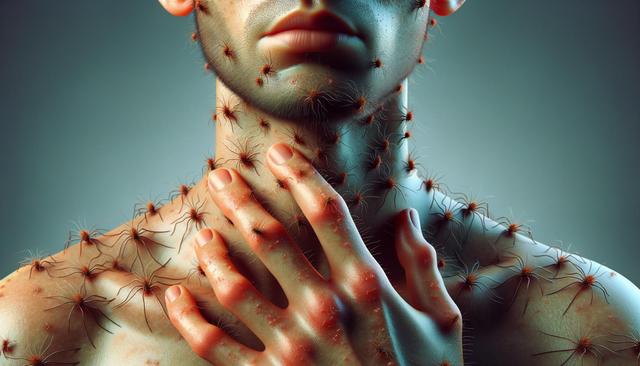Understanding the Causes of Itchy Skin
Itchy skin, also known as pruritus, can stem from a variety of underlying conditions. Before seeking treatment, it’s important to identify the root cause. Common triggers include dry skin, allergic reactions, eczema, psoriasis, insect bites, and even internal conditions such as liver or kidney disease. Environmental factors like cold weather or exposure to harsh soaps can also contribute to skin irritation. In some cases, the cause may be unclear, which makes managing symptoms even more critical.
When itching becomes severe or persistent, it may signal a chronic condition that requires medical attention. Knowing the potential causes can guide individuals in selecting appropriate treatments, such as choosing the right Itchy Skin Cream or exploring Medications for Severe Itching tailored to their specific needs.
Topical Treatments: Finding the Right Cream or Ointment
For many, the first line of defense against itchy skin is a topical treatment. Selecting the right Cream for Itchy Skin can significantly reduce discomfort and improve skin health. There are numerous options available, each formulated for different types of irritation. The Best Cream for Itchy Skin typically includes ingredients such as hydrocortisone, colloidal oatmeal, or menthol, which offer soothing and anti-inflammatory properties.
In addition to creams, ointments can provide a thicker barrier that locks in moisture and offers longer-lasting protection. Choosing the Best Ointment for Itching Skin can be especially helpful for individuals dealing with extremely dry or cracked skin. Look for products that are fragrance-free and dermatologically tested to minimize the risk of further irritation.
Some effective ingredients to look for in topical treatments include:
- Hydrocortisone – for reducing inflammation and redness
- Calamine – for soothing insect bites or allergic reactions
- Petrolatum – for intense moisture retention
- Menthol or camphor – for a cooling sensation that eases itching
When to Consider Oral Medications
In cases where topical solutions are not enough, oral Medications for Severe Itching may be necessary. These treatments are often prescribed for individuals with systemic issues or widespread skin conditions that topical treatments alone cannot adequately address. Antihistamines are commonly used to manage itching caused by allergies or hives, while prescription medications like corticosteroids or immunosuppressants may be recommended for autoimmune skin disorders such as eczema or psoriasis.
Before starting any medication, it’s essential to consult a healthcare provider. They can help determine the most effective approach based on your symptoms and medical history. It’s also important to be aware of potential side effects and interactions with other medications.
In some situations, combining oral and topical treatments can offer more comprehensive relief. This approach helps manage both the surface symptoms and the underlying causes of severe itching.
Home Remedies and Lifestyle Adjustments
In addition to medical treatments, several home remedies and lifestyle changes can help reduce or prevent itchy skin. These methods are particularly useful for managing mild to moderate symptoms or complementing other treatments. Keeping the skin well-hydrated is one of the most important steps. Use a gentle moisturizer after bathing and avoid hot water, which can strip the skin of natural oils.
Other helpful strategies include:
- Using a humidifier in dry environments
- Wearing soft, breathable fabrics like cotton
- Avoiding harsh soaps and detergents
- Taking oatmeal baths for natural soothing effects
- Applying cold compresses to itchy areas
These measures can significantly improve skin condition and comfort. However, if symptoms persist despite these efforts, it’s advisable to seek professional advice for further evaluation and treatment options.
How Do I Stop Severe Itching? A Strategic Approach
When asking, “How do I stop severe itching?”, the answer often lies in a combination of treatments and preventative measures. Severe itching may not always be resolved with a single remedy, but a well-rounded approach can offer substantial relief. Start by identifying and avoiding known triggers, whether they are environmental, dietary, or related to personal care products.
Next, choose a suitable Itchy Skin Cream or ointment based on your symptoms and skin type. For many, this involves trying a few different products before finding the right fit. The Best Cream for Itchy Skin will offer both immediate relief and long-term skin support. If needed, talk to a dermatologist about more advanced options, including Medications for Severe Itching that target internal causes.
By combining smart product choices with healthy skin habits, individuals can take meaningful steps toward reducing discomfort and maintaining skin health over the long term.
Conclusion: Managing Itchy Skin Effectively
Managing itchy skin can be a frustrating experience, but with the right approach, it is possible to find lasting relief. Whether you’re dealing with occasional irritation or a chronic condition, understanding your triggers and selecting appropriate treatments—whether it’s a highly rated Itchy Skin Cream, the Best Ointment for Itching Skin, or prescribed Medications for Severe Itching—is key to improving your quality of life. Don’t hesitate to seek professional advice for persistent or severe symptoms, and remember that consistent skin care and lifestyle adjustments can make a significant difference in your comfort and well-being.




Leave a Reply